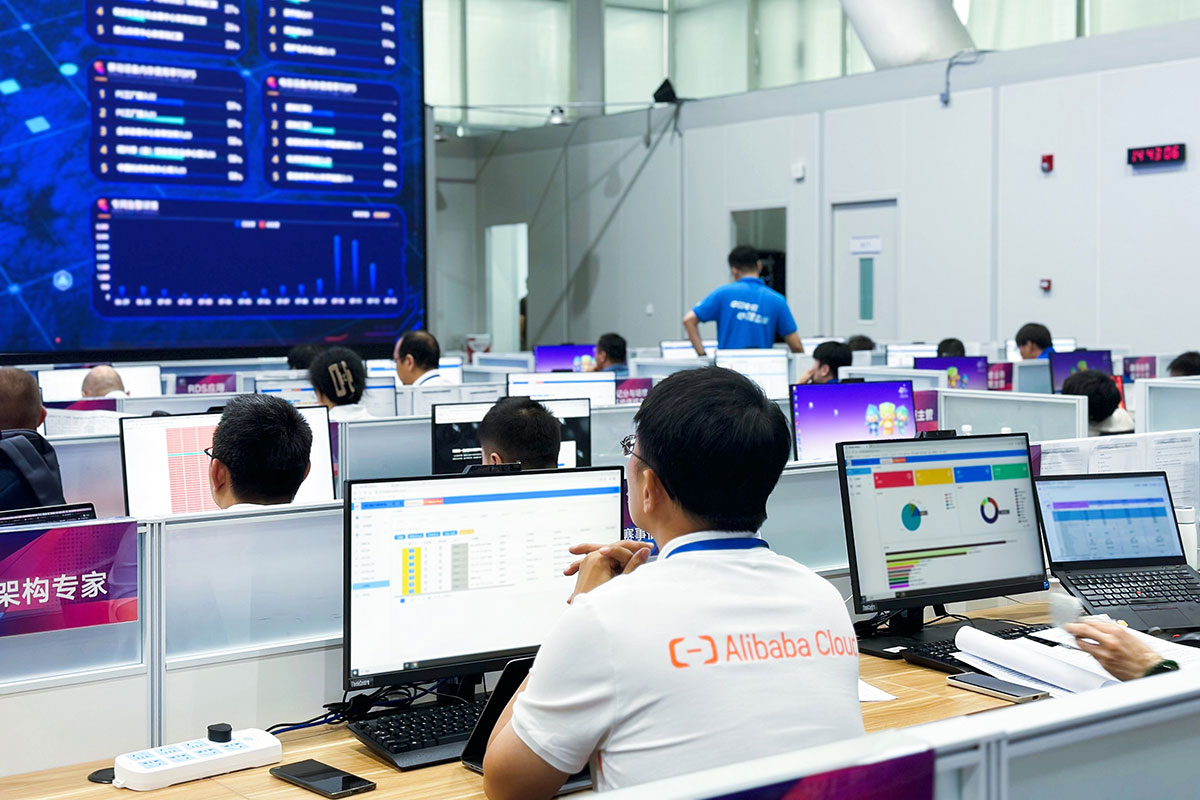How Technology is Changing the Game for Sports Forever: Better Efficiency, Engagement, Sustainability and Inclusivity Can Be Expected

In 2021, approximately 3 billion viewers tuned in to watch the Olympic Games 2020 Tokyo via global broadcasting systems. In 2022, the Olympic Winter Games Beijing 2022 drew in more than 2 billion viewers from around the world. We anticipate increased viewership during the Paris 2024 Olympic Games this summer, as it will mark the first occasion in history where live cloud broadcasting becomes the primary method (taking over satellite from the first time since 1964) for distributing live broadcast signals. These virtual viewership capabilities would not have been possible without technology.
Aside from sophisticated broadcasting systems for global audiences, technology is already well-employed in the sporting world – from athletes adopting wearables and augmented reality training models to personalise their training process and enhance their performance, to building more interactive fan engagement experiences. As technology continues to become deeply embedded in multiple facets in sporting scenes, what we need to look at next is how tech can be used to push the boundaries of the sporting world beyond just the sport itself – to reach more people and communities in need, to directly impact, champion and enact positive change over macro focuses and challenges such as climate change.
Cloud services to drive more efficient sports events and broadcasting
The transformational power of technology has broadened accessibility of sports beyond physical fields and arenas to live in our virtual screens and even in the metaverse. It has also solidified the fact that tech is able to eliminate geographical boundaries and drive sustained and immersive fan and viewer engagements on digital platforms.
This necessitates more efficiency and sustainability from cloud broadcasting systems. It is also therefore critical for major sporting events to run on trusted and robust systems to ensure smooth operations. As the official cloud services partner of the Olympics since 2017, Alibaba Cloud has worked with the International Olympic Committee (IOC) to develop cloud-based and solutions tailored for each Games to create inclusive and unparalleled viewing experiences.
The need for cost-efficiency and agile digital broadcasting systems for sports fans was even greater at the height of the COVID-19 pandemic, at a time when athletes had to compete in empty stadiums. At the 2020 Tokyo Olympic Games, Alibaba Cloud worked with the Olympic Broadcasting Services (OBS) to transmit signals through Alibaba Cloud networks at stable and high-definition bandwidth. This enabled broadcasting organisations to reduce physical staffing and equipment deployment in Tokyo for Games – aiding efficiency and sustainability – because they could receive and edit the video clips remotely via the cloud.
Similarly, the core systems of the 2022 Beijing Winter Olympic Games were hosted on Alibaba Cloud for the first time, enhancing the organizers’ efficiency. This shift resulted in reduced time and cost investment in IT infrastructure, hardware, and associated management. The advanced cloud-based capability to analyse real-time intelligence further streamlined and improved the planning and management for Beijing 2022, leading to a more seamless user experience.
Driving authentic green movements in major sporting events
With climate change a growing international concern, there is increasing pressure now more than ever for large-scale carbon emissions contributors to ramp up carbon reduction efforts and make this a priority. This includes transforming games such that it takes on a digitalised nature and adopts a technology infrastructure capable of supporting these operational systems. This can also extend to the esports scene, where a single esports team can generate up to 100 tonnes of CO2 emissions (CO2e), and considering that approximately 40% of the global populations plays video games. The IOC has also made a lower-impact Games a priority, with the 2024 Paris Olympic Games earmarked to run on 100% renewable energy. The IOC has also set binding requirements to minimise direct, as well as indirect, carbon emissions. This will apply to Games hosted from 2030 and beyond.
Closer to home, Alibaba Cloud trialled its proprietary AI-driven sustainability solution and carbon management tool – Energy Expert – at the inaugural 2023 Olympic Esports Week in Singapore, to measure and analyse carbon emissions from temporary construction built at the event. Beyond measurements, the tool was able to make carbon reduction suggestions such as adopting digital signages to reduce CO2e by 14 tonnes and reusing 50% of carpets post-event to slash emissions further by 10 tonnes.
Pioneering inclusive tech applications at large-scale sporting events
At the heart of it, sporting events such as the Olympics are all about the spirit of inclusivity. This is exactly where tech can and should come in – to make sporting events more accessible and inclusive. According to the World Health Organization (WHO), more than 1.5 billion people – nearly 20% of the global population – live with hearing loss. To foster inclusivity at the 2023 Asian Paralympic Games, Alibaba Cloud introduced its digital avatar, Xiaomo, to serve as a sign language interpreter for individuals with hearing impairments.
Tech can also be a bridge for human connections. For example, Alibaba Cloud unveiled its human-like virtual influencer, Dong Dong, at the 2022 Beijing Winter Olympics to facilitate interactions with global fans by simulating real-life conversations and goings-on at an Olympic venue through live streaming broadcasts. This tapped on 3D-driven technology, text to speech, and Natural Language Processing (NLP) to synthesize human voices and generate human-like dialogues between Dong Dong and fans. Dong Dong’s livestreams were viewed by more than 2 million viewers and garnered a fanbase of over 100,000.
The beauty of these technologies is that they can be applied anywhere and used outside of the Games – a truly perfect way to illustrate the far-reaching benefits of technology.
Powering a technology-led sports revolution
Technology applications in sports have the potential to reflect the sporting spirit of togetherness, excellence and inclusivity, and there are limitless possibilities for technology to power change for the long-term while being used responsibly.
For us at Alibaba Cloud, the work done at the Hangzhou Asian Games and at Tokyo 2020 and Beijing 2022 is just the beginning. This year is an exciting one for the sporting world with the Summer Olympics in Paris and presents opportunities to explore more tech and AI-driven dynamism and capabilities to create bigger and better experiences and to realise more remarkable ways cloud providers and innovators can meaningfully and successfully bridge sustainability and accessibility gaps.


